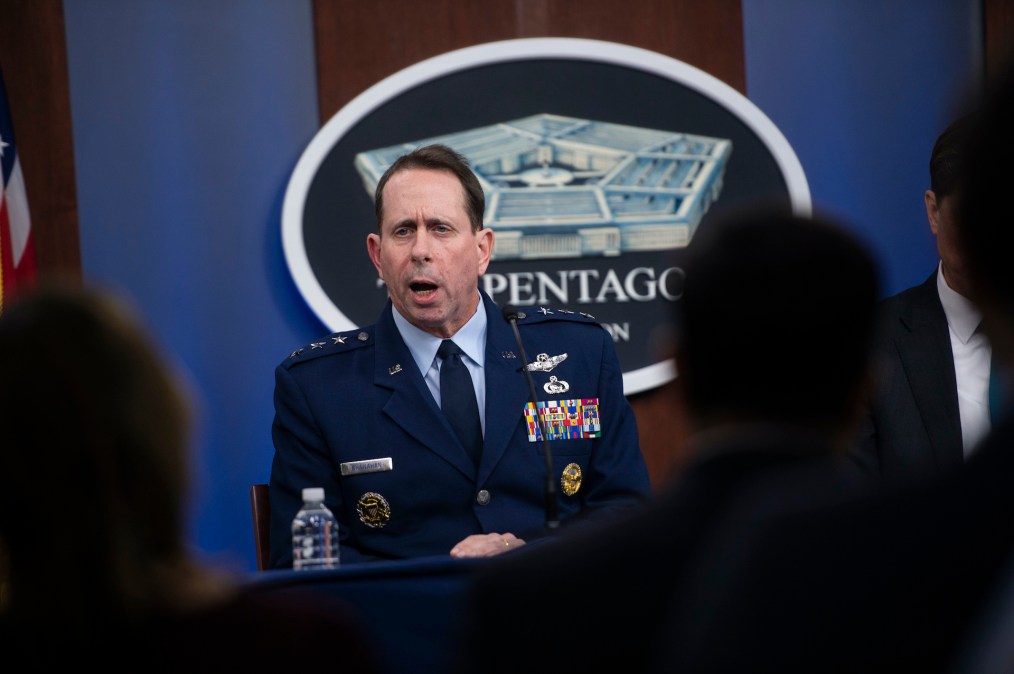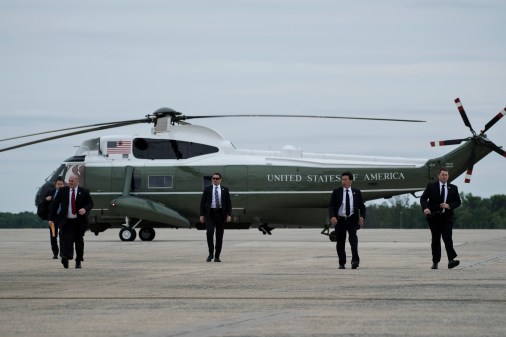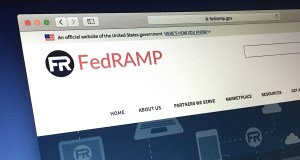JAIC needs its own acquisition authority within next two years, Shanahan says

The Joint Artificial Intelligence Center should be able to ink its own deals if it’s going to properly provide AI technology for the Department of Defense, its inaugural leader, Lt. Gen. Jack Shanahan, said Thursday.
Two years since its launch, the center is finally ready to start moving fast to deliver AI products across the military, Shanahan said. Currently the JAIC has to work through the General Services Administration, Defense Innovation Unit and other organizations that have their own acquisition authorities to award contracts to the private sector.
Within the next two years, though, those workarounds are “not going to be fast enough,” Shanahan said during an AFCEA virtual event. The JAIC must have the authority to issue its own requests and make its own awards on contracts, he said.
The JAIC currently works closely with GSA through its AI Center of Excellence and as a partner supporting its acquisitions. Monday, GSA awarded an $800 million task order to Booz Allen Hamilton through the Alliant 2 contract vehicle for work on an AI joint warfighting initiative. Shanahan described GSA as the “best possible partner,” but said the military’s AI hub needs to break out on its own.
If given its own authority to purchase tech, Shanahan said the JAIC would work to ensure small and nontraditional technology firms have a level playing field at receiving contracts. The award to Booz Allen was for the defense consulting giant to be an “integrator” and work to bring in smaller companies as subcontractors, the general said.
“Everybody is an equal player,” he said.
It’s a move supported by Rep. Adam Smith, D-Wash., who chairs the House Armed Services Committee that would need to authorize the new authorities through the National Defense Authorization Act.
“As the focal point for AI and despite the young age of the JAIC, Chairman Smith supports the need for JAIC to have the appropriate authorities to ensure they are able to acquire technologies rapidly, without the stunting layers of bureaucracy,” a spokesperson told FedScoop. Leaders on the Senate committee did not return a request for comment.
Shanahan signaled that the JAIC will soon be pumping out more requests for information (RFIs) as it seeks to increase its work with industry to deliver on its many lines of efforts. To best work with industry, the JAIC would like to use many types of contract vehicles, including the highly flexible other transaction agreements (OTAs) and typical requests for proposals.
“The DFAR actually gives a lot more latitude than people believe,” he said, speaking about the Defense Federal Acquisition Regulation that governs typical defense contracting.
Shanahan will be retiring from the Air Force at the end of the month and will step down from the JAIC, a center he saw start with four people and grow to currently house175 people with a more than $200 million budget.




